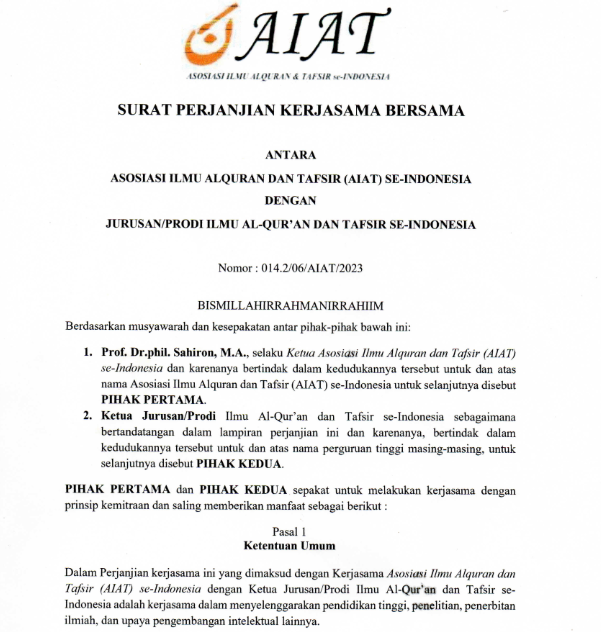Aplikasi Pendekatan Hermeneutika Al-Qur’an Nasr Hamid Abu Zayd terhadap QS. Al-Nisa’ (4): 3 dan Al-Nahl (16): 3-4
 Abstract views: 1161
,
Abstract views: 1161
,
 PDF downloads: 1012
PDF downloads: 1012
Abstract
Downloads
References
Abdullah, Amin. “Pendekatan Hermeneutik dalam Studi Fatwa-fatwa Keagamaan: Proses Negosiasi Komunitas Pencari Makna Teks, Pengarang, dan Pembaca”, dalam Pengantar buku Khaled M. Abou El-Fadl. Atas Nama Tuhan: Dari Fikih Otoriter ke Fikih Otoritatif. Jakarta: Serambi, 2004.
Chirzin, Muhammad. Fenomena Al-Qur’an “Diskusi Pemikiran Ulil Absar-Abdalla, Lutfhi Assyaukhani, dan Abd Moqsith Ghazali tentang Metodologi Studi Al-Qur’an. Yogyakarta: Pustaka Pelajar, 2018.
Hanafi, Hasan. 2009. Hermeneutika Al-Qur’an. Yogyakarta: Pesantren Nawesea Press, 2009.
Hasan. Revolusi Seksual Perempuan. Bandung: Mizan, 1995.
Ichwan, Moch. Nur. Studi al-Qur’an Kontemporer: al-Qur’an sebagai Teks. Yogyakarta: PT. Tiara Wacana Yogya, 2002.
Ichwan, Moch. Nur, “Nasr Hamid Abu Zayd Dan Studi Al-Quran”, Risalah, No. 11 Th. XXXV, Januari 1998.
Ichwan, Moch. Nur, Meretas Kesarjanaan Kritis al-Qur’an: Teori Hermeneutika Nasr Hamid Abu Zayd. Jakarta: Teraju, Cet.I, 2003.
Ichwan, Mochammad Nur, Meretas Kesarjanaan Kritis al-Quran: Teori Hermeneutika Nasr Abu Zayd. Jakarta: Teraju, 2003.
Kaelan, Metode Penelitian Agama Kualitatif Interdisipliner. Yogyakarta: Paradigma, 2010.
Kementerian Agama RI, Al-Qur’an dan Terjemahan. Bandung: Mikraj Khazanah Ilmu, 2016.
Kurdi (dkk). Hermeneutika al-Qur’an dan Hadis. Yogyakarta: Elsaq Press, 2010.
Mustaqim, Abdul. Metode Penelitian Al-Qur’an dan Tafsir. Yogyakarta: Idea Press, 2016.
Nasution, Khoiruddin, Riba dan Poligami: Studi atas Pemikiran Muhammad Abduh.Yogyakarta: Pustaka Pelajar dan ACAdeMIA, 1996.
Rahman, Fazlur. Membuka Pintu Ijtihad. Bandung: Pustaka, 1995.
Syamsuddin, Arief, “Kisah Intelektual Nasr Hamid Abu Zain”, 27 September 2020, http://muslimdelft.nl/titian_ilmu/ilmu_kalam_dan_aqidah/kisah_intelektual_nasr_hamid_abu_Zain.php.
Usman. Ilmu Tafsir. Yogyakarta: Teras, 2009.
Zayd, Nashr Hamid Abu. Al-Imam al-Syafi wa Ta’sisu al-Idiyulujiyyah al-Wasatiyyah. Beirut: Al-Markaz al-Tsaqafi al-’Arabi, 2007.
Zayd, Nashr Hamid Abu. Wada’ir Al Khaif: Qira’ah Fi Khitab Al Mar’ah. Beirut: Dar Al Baidha, 2004.
Zayd, Nasr Hamd Abu. Rethinking Qur’an: Towords a Humanistic Hermeneutics. Amsterdam: Humanistics University Press, 2004.
Zayd, Nasr Hamid Abu. Al-Quran Hermeneutik dan Kekuasaan, terj. Mochammad Nur Ichwan. Bandung: RQiS, 2003.
Zayd, Nasr Hamid Abu. Mafhum al-Nass. (Kairo: Al-Hai’ah al-Misriyyah al’Ammah li al-Kutub, 1990.
The journal operates an Open Access policy under a Creative Commons Non-Commercial Share-Alike license. All articles published Open Access will be immediately and permanently free for everyone to read and download.
• Creative Commons Attribution-NonCommercial (CC-BY-NC)

Revelatia: Jurnal Ilmu al-Qur`an and Tafsir by http://ejournal.iainmadura.ac.id/index.php/revelatia is licensed under a Creative Commons Attribution-NonCommercial 4.0 International License.
Based on a work at http://ejournal.iainmadura.ac.id.





















